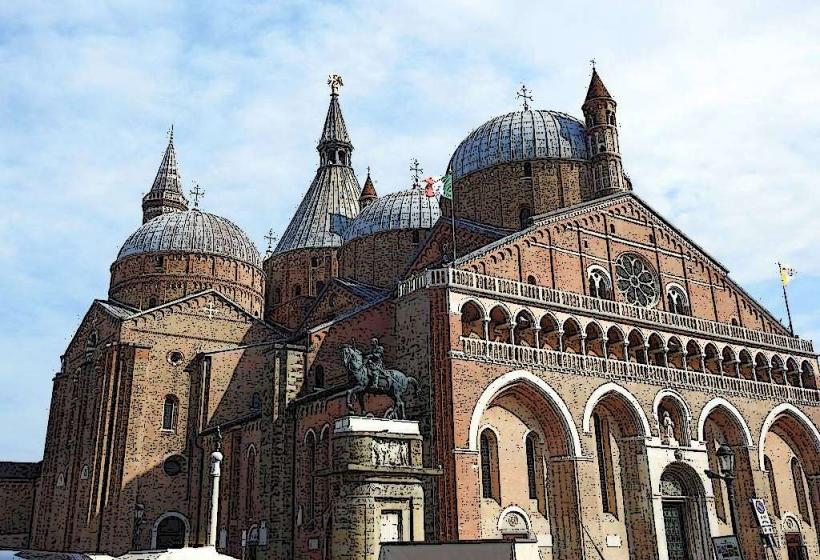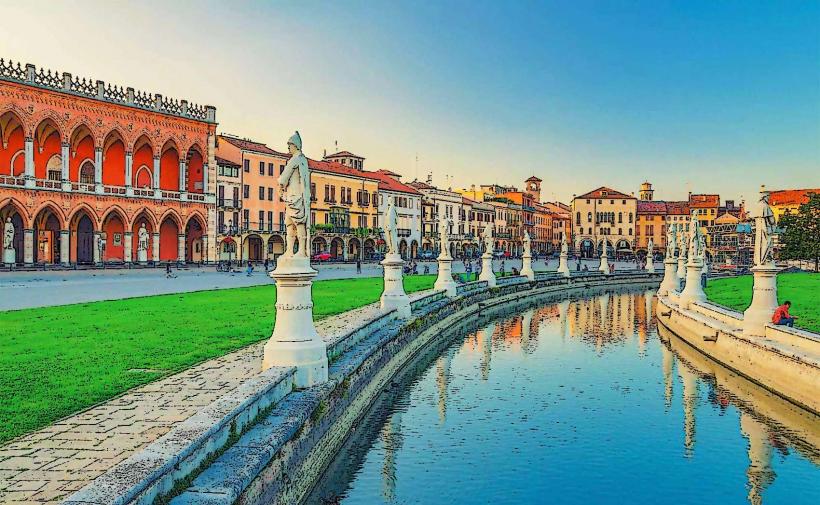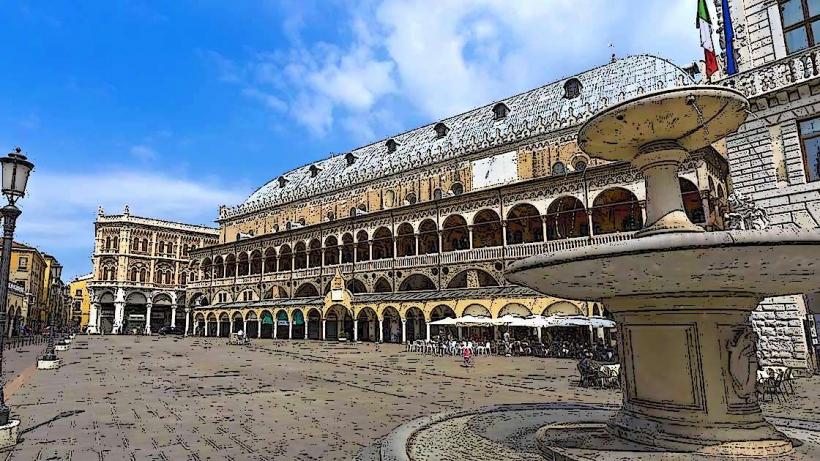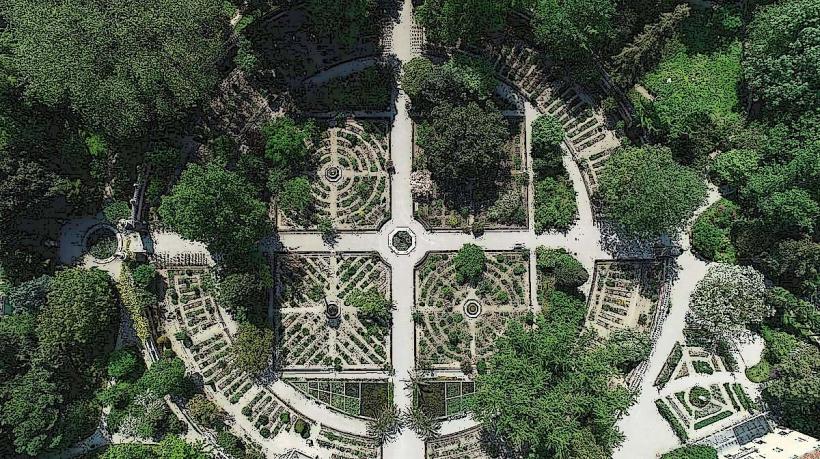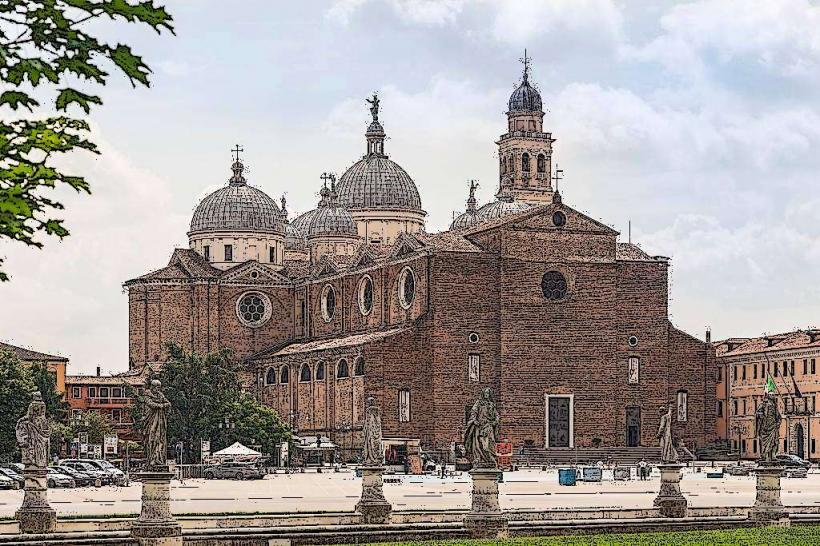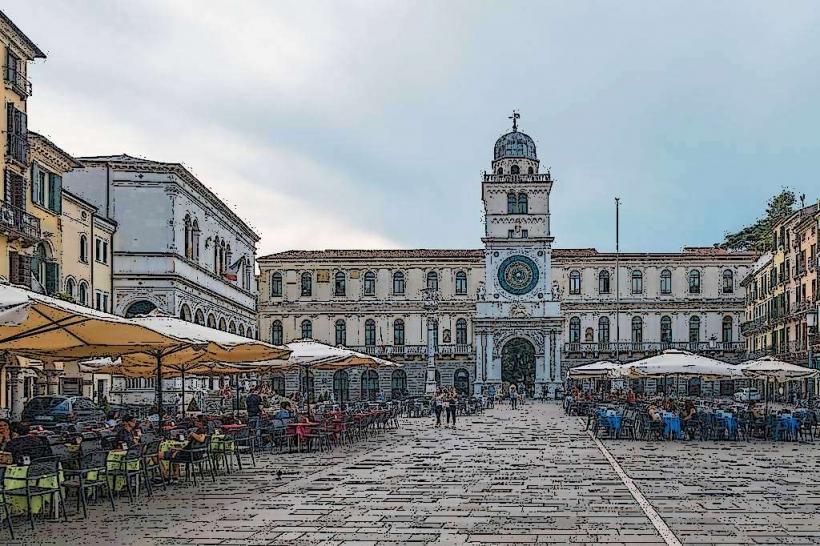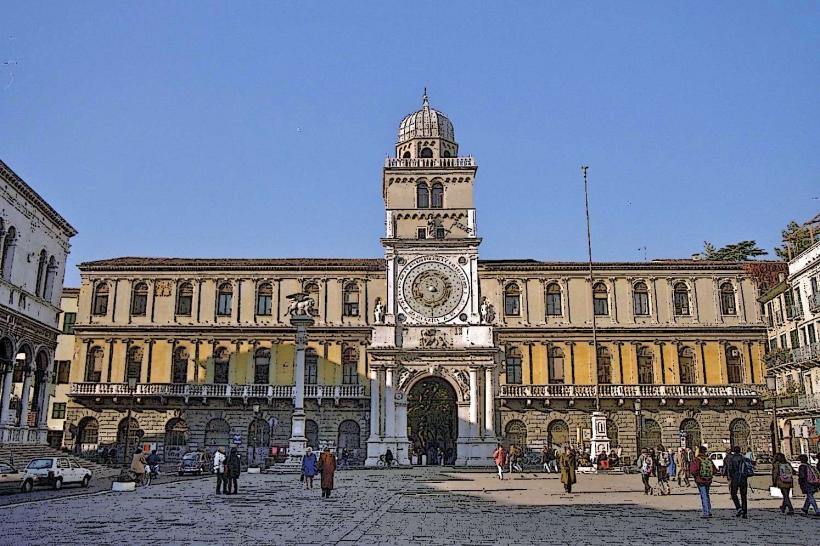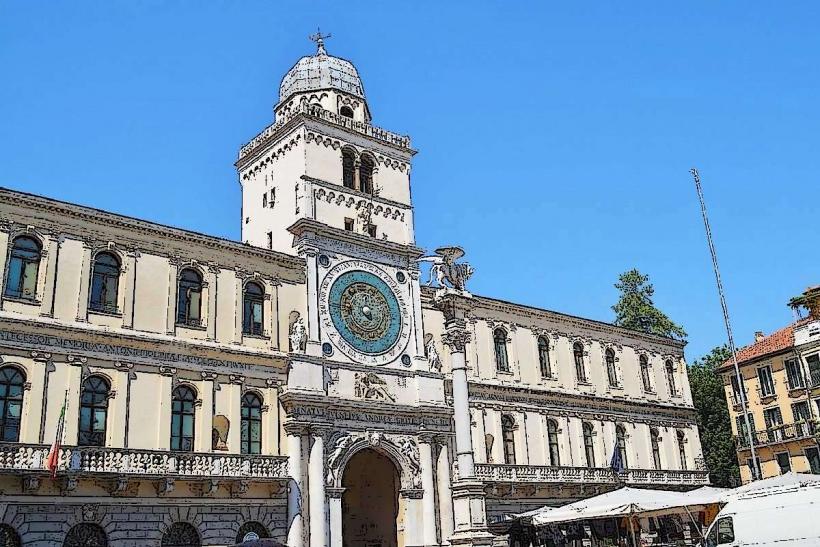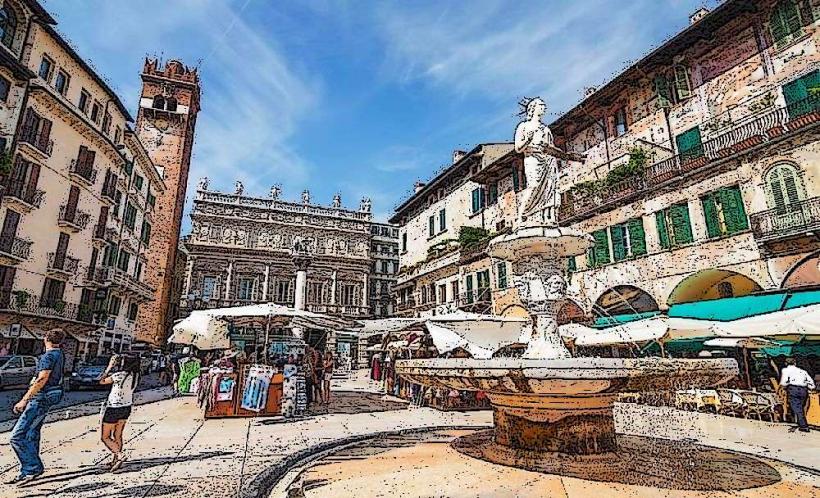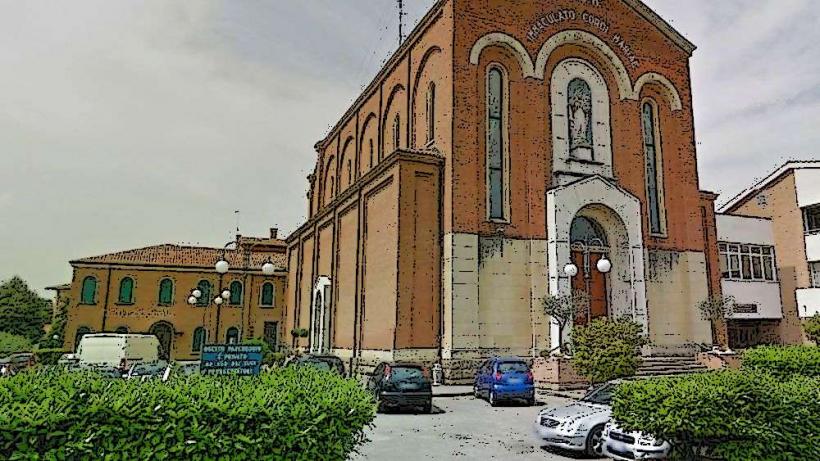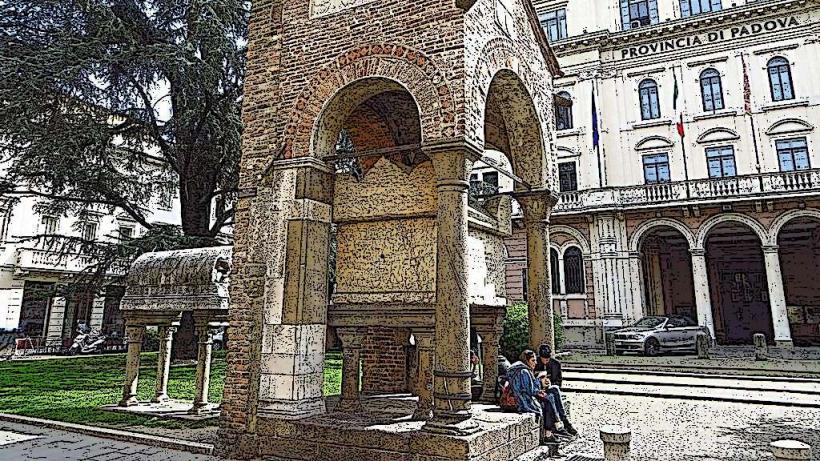Information
Landmark: Porta AltinateCity: Padua
Country: Italy
Continent: Europe
Porta Altinate, Padua, Italy, Europe
The Porta Altinate is a medieval gateway located at the intersection of Via Altinate and Via Cassan in the historic center of Padua, Italy. It serves as one of the primary surviving entrances of the city's 13th-century communal wall circuit.
Visual Characteristics
The gate is a massive brick structure featuring a large pointed archway typical of Gothic military architecture. The exterior is composed of exposed red brickwork with defensive battlements crowning the top of the tower. A marble relief of a Venetian lion, signifying the historical rule of the Republic of Venice, is embedded above the central arch.
Location & Access Logistics
The landmark is located approximately 1km south of the Padova Centrale railway station and is easily reached via the T1 tram line (stop Eremitani). It sits at the start of the pedestrian zone leading toward Piazza Eremitani. Motorized access is restricted to authorized vehicles only; the nearest public parking is the Parcheggio Padova Centro on Via Goffredo Mameli.
Historical & Ecological Origin
Constructed in 1256, the gate was built shortly after the fall of the tyrant Ezzelino III da Romano to replace a previous Roman-era gate. It was named after the ancient city of Altinum, as the road leading through it traditionally connected Padua to that settlement. The structure underwent significant restoration in the 16th century following the expansion of the city's defensive systems.
Key Highlights & Activities
Visitors can walk through the archway to view the transition between the modern city streets and the medieval core. The gate is a primary landmark on the walking route between the Scrovegni Chapel and the university district. Detailed observation of the brickwork reveals the layers of historical fortification techniques used during the Communal era.
Infrastructure & Amenities
There are no internal facilities or restrooms within the gate itself. Public amenities are located in the nearby Centro Culturale Altinate San Gaetano. Cellular reception (5G) is strong throughout the area. The surrounding street, Via Altinate, is a major commercial artery featuring high-density retail stores and food vendors.
Best Time to Visit
The gate is best viewed during daylight hours for architectural photography, particularly in the morning when the sun illuminates the eastern facade. As a public thoroughfare, it is accessible 24 hours a day. The area is busiest during late afternoon shopping hours and student transit times.
Facts & Legends
The Porta Altinate is historically significant as the site where the Crusaders entered the city in June 1256 to liberate Padua from Ezzelino III da Romano. A commemorative plaque near the gate marks this event, and for centuries, it was considered a symbol of the city's regained liberty and political independence.
Nearby Landmarks
Scrovegni Chapel: 0.3km North
Musei Civici Eremitani: 0.25km North
Caffè Pedrocchi: 0.4km Southwest
Palazzo Zabarella: 0.3km South
Centro Culturale Altinate San Gaetano: 0.1km East

